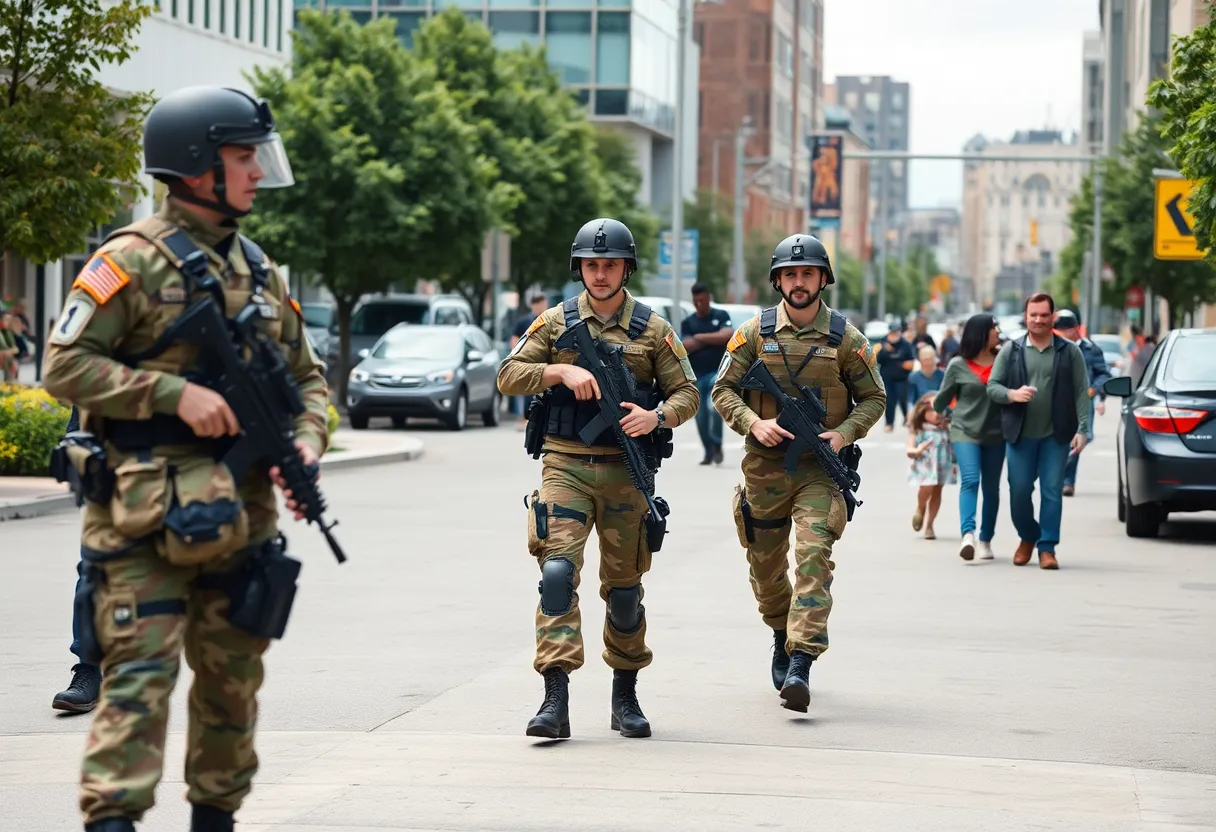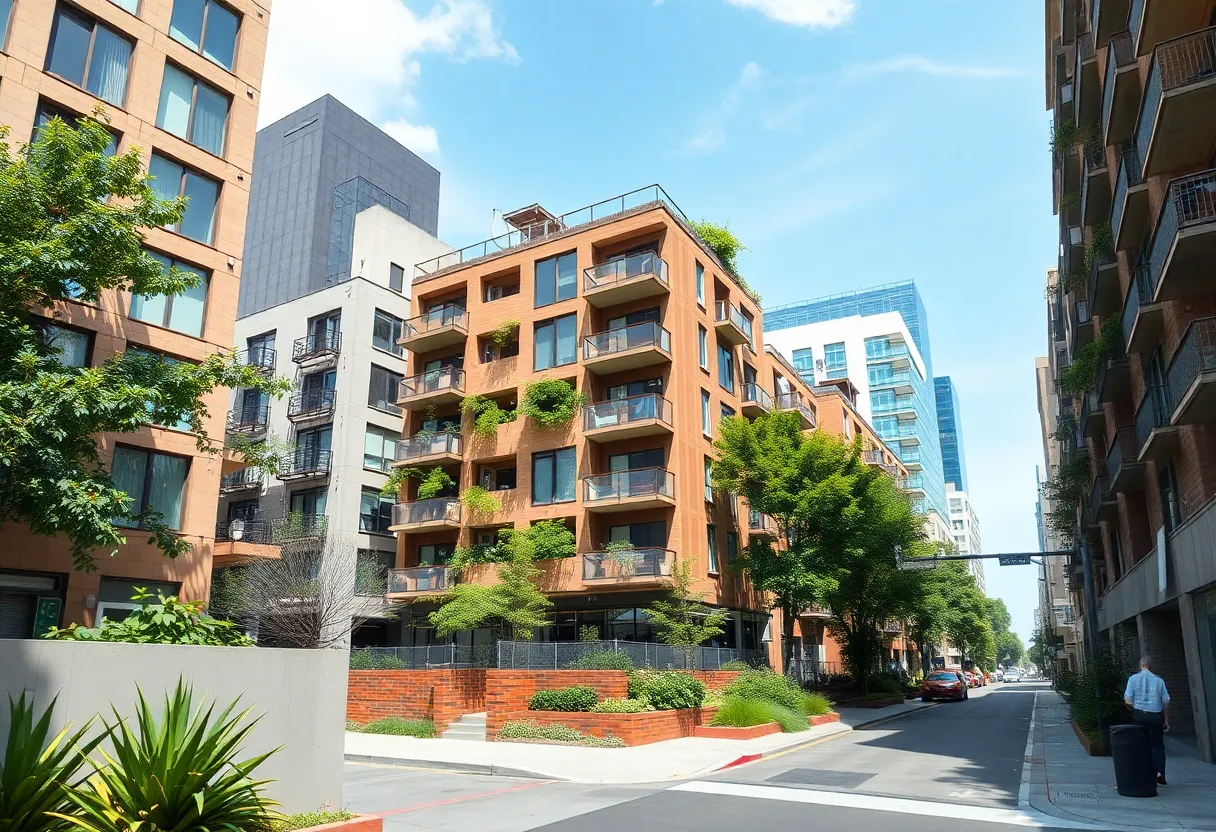News Summary
President Trump has announced the deployment of 800 National Guard troops to Washington D.C. to address rising crime rates and restore law and order. The deployment follows the declaration of a public safety emergency and federal control of the Metropolitan Police Department. Critics question the necessity of this action amid declining crime statistics, while local leaders express concern over potential erosion of trust between communities and law enforcement.
Washington D.C. – President Trump has announced the deployment of 800 National Guard troops to the nation’s capital to address rising crime concerns and restore law and order. This move comes as the president declared a public safety emergency in Washington D.C. He has also placed the Metropolitan Police Department under direct federal control, a decision framed as necessary to combat what he described as a city overrun by “violent gangs,” “bloodthirsty criminals,” and “homeless people.”
The executive order facilitating this action is grounded in Section 740 of the District of Columbia Home Rule Act. This legislative framework allows the federal government to intervene in local governance when deemed necessary. The paradigm appears to draw parallels to tactics used earlier in Los Angeles during immigration raids this past summer.
The announcement underscores a growing concern regarding crime rates in Washington D.C., which recorded a homicide rate of 27 per 100,000 residents in 2024, ranking it as the fourth-highest in the nation. In stark contrast, Los Angeles had a rate of 7.1. However, despite the president’s claims, crime statistics reveal a general decline in violent crime in D.C. over the last few years, reaching a 30-year low just prior to Trump’s presidency.
D.C. Mayor Muriel Bowser described the deployment as “unsettling and unprecedented,” while acknowledging the federal government’s powers to manage the district’s law enforcement. Mayor Bowser contended that crime rates have significantly decreased since a spike following the COVID-19 pandemic, which contradicts the narrative presented by the president regarding the city’s crime situation.
Critics of the National Guard deployment include D.C. Attorney General Brian Schwalb, who labeled the action as “unprecedented, unnecessary and unlawful.” Concerns have been raised about the potential for eroding trust between local communities and law enforcement, a critical factor in addressing crime effectively. Mayor Bowser emphasized the necessity for community cooperation with police efforts, warning that a loss of trust could exacerbate crime-related issues.
The National Guard troops will operate under Title 32 status, indicating that they will not be subject to the Posse Comitatus Act, which restricts the military’s role in domestic law enforcement. Their involvement will primarily consist of providing administrative and logistical support to local law enforcement agencies rather than engaging in arresting individuals directly.
Interestingly, local leaders and some members of the D.C. Police Union have expressed agreement with the president’s concerns about crime, signifying a troubling dichotomy between federal and local perspectives. This sentiment highlights a belief among law enforcement that something needs to be done to enhance public safety in the capital.
Despite significant community concern about crime, public opinion has suggested that perceptions of crime as a major problem have been decreasing since 2022, indicating a complicated relationship between residents and law enforcement perceptions. Meanwhile, a lack of communication surrounding the deployment emerged, with reports indicating that Mayor Bowser and her police chief were not informed about Trump’s plans before the public announcement.
The National Guard deployment comes amid ongoing uncertainty regarding its role in Washington D.C., mirroring legal disputes surrounding previous federal military deployments in California. Reactions from mayors across various states have deemed Trump’s actions politically motivated, raising alarms about the implications for local governance and autonomy.
As the situation continues to develop, the focus remains on how the National Guard’s presence will ultimately impact the crime rate and public trust within the capital, as well as the broader implications for governance in Washington D.C. and beyond.
Deeper Dive: News & Info About This Topic
HERE Resources
California Governor Newsom to Challenge Senate Vote on Emissions Standards
San Diego Leaders Lobby Against Looming Tariff Concerns
California Takes Action Against New Tariffs
Additional Resources
- CNN
- Wikipedia: National Guard of the United States
- BBC News
- Google Search: Washington DC crime 2025
- The New York Times
- Google Scholar: National Guard deployment
- Fox News
- Encyclopedia Britannica: Crime in the United States
- Reuters
- Google News: Trump DC National Guard deployment

Author: STAFF HERE HOLLYWOOD
The Hollywood Staff Writer represents the experienced team at HEREHollywood.com, your go-to source for actionable local news and information in Hollywood, Los Angeles County, and beyond. Specializing in "news you can use," we cover essential topics like product reviews for personal and business needs, local business directories, politics, real estate trends, neighborhood insights, and state news affecting the area—with deep expertise drawn from years of dedicated reporting and strong community input, including local press releases and business updates. We deliver top reporting on high-value events such as the Hollywood Bowl summer concerts, the Hollywood Christmas Parade, film premieres at TCL Chinese Theatre, and festivals at the Magic Castle. Our coverage extends to key organizations like the Hollywood Chamber of Commerce and Visit Hollywood, plus leading businesses in entertainment, dining, and tourism that define the local economy. As part of the broader HERE network, including HERELosAngeles.com, HEREBeverlyHills.com, HEREAnaheim.com, and HEREHuntingtonBeach.com, we provide comprehensive, credible insights into Southern California's dynamic landscape.



